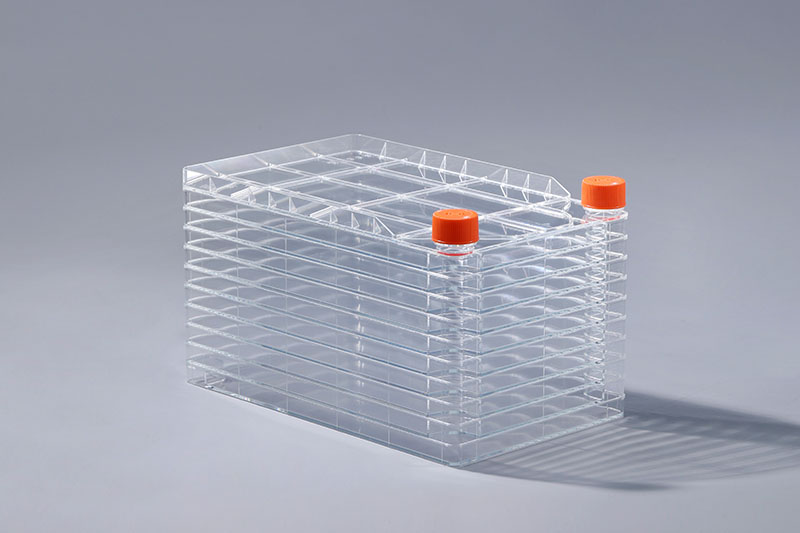O cell factory é um consumível de cultura de células multicamadas, que é usado principalmente na produção em massa industrial, operações de laboratório e cultura de células em larga escala, e é a escolha ideal para células aderentes. Ao escolher este tipo de consumíveis, teremos em atenção um fator chave, que é o tratamento de superfície TC, porque é que tem de sofrer este tratamento especial?
As células podem ser divididas em dois tipos: aderentes células e células em suspensão de acordo com diferentes métodos de crescimento. As células em suspensão não precisam estar presas a um suporte para crescer e podem crescer em suspensão em meio de cultura. As células aderentes devem ter uma superfície de crescimento à qual possam se fixar para crescer, e apenas uma interface sólida hidrofílica pode permitir a fixação das células.
A fábrica de células é usada principalmente para a cultura de células aderentes, que é processada por moldagem por injeção de matérias-primas de poliestireno transparente (PS). Como material polimérico, o PS tem boa resistência e plasticidade, e não tem toxicidade, e se tornou o material preferido para consumíveis descartáveis de cultura de células. No entanto, a superfície do PS é hidrofóbica, o que por si só não é propício ao crescimento de células aderentes. A fim de melhorar o desempenho de aderência das células, é necessário passar por tratamento de modificação de superfície e introduzir grupos hidrofílicos para permitir que as células cresçam melhor. crescimento de células aderentes. Os consumíveis usados para a cultura de células em suspensão não requerem necessariamente tais recipientes especialmente tratados, mas os consumíveis após o tratamento de TC de superfície geralmente também são adequados para a cultura de células em suspensão.
In summary, the purpose of TC treatment on the cell factory surface is to adapt to the growth of adherent cells. The consumables used for suspension cell culture do not necessarily require such specially treated vessels, but the consumables after surface TC treatment are generally also suitable for the culture of suspension cells.
The FAI climbed 5.9 percent year-on-year in the first 11 months of 2018, quickening from the 5.7-percent growth in Jan-Oct, the National Bureau of Statistics (NBS) said Friday in an online statement.
The key indicator of investment, dubbed a major growth driver, hit the bottom in August and has since started to rebound steadily.
In the face of emerging economic challenges home and abroad, China has stepped up efforts to stabilize investment, in particular rolling out measures to motivate private investors and channel funds into infrastructure.
Friday's data showed private investment, accounting for more than 60 percent of the total FAI, expanded by a brisk 8.7 percent.
NBS spokesperson Mao Shengyong said funds into weak economic links registered rapid increases as investment in environmental protection and agriculture jumped 42 percent and 12.5 percent respectively, much faster than the average.
In breakdown, investment in high-tech and equipment manufacturing remained vigorous with 16.1-percent and 11.6-percent increases respectively in the first 11 months. Infrastructure investment gained 3.7 percent, staying flat. Investment in property development rose 9.7 percent, also unchanged.
 English
English



















































